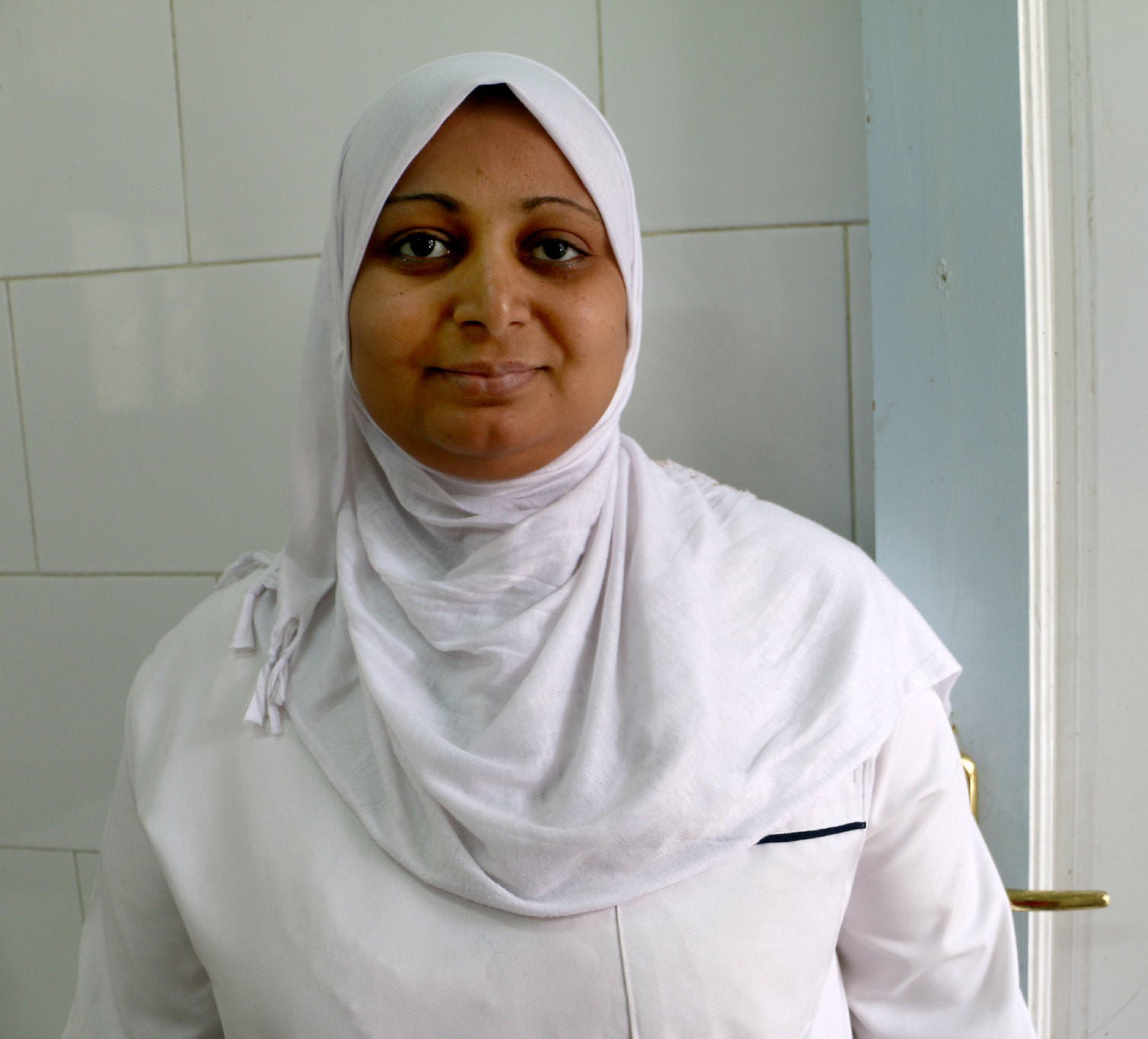A joint posting by members of the CGD health team (April Harding, Mead Over, Rachel Nugent, Andrea Feigl, and Danielle Kuczynski)Scene 1.Thursday was a typical morning at CGD: birds chirping, sun shining, the health team arrives at their computers and sits down with a hot cup of coffee to tackle the challenges of the day- only to find that April Harding has circulated an article by Anne Applebaum (AA), on why the World Health Organization (WHO) should focus on infectious diseases, which April called “A really nice piece on why we should care about (and fix) the WHO”.Email frenzy ensues.While you would be hard-pressed to find a global health-er at CGD who would disagree that the WHO needs to change, the debate on what changes are needed is indeed quite lively– should WHO focus only on infectious diseases, as Applebaum suggests? Or, should it retain a broader health mandate, and increase its work on chronic diseases? The below is a scene straight out of the email inboxes at CGD that combines the perspectives of both junior and senior staff on what the priorities of WHO should be.We encourage you to continue this discussion online with us by submitting your comments below:[Enter: the Economists]Mead - “This is a topic on which Rachel (Nugent) and I will disagree. I think that public economics supports Applebaum's view that infectious disease comes first. And cross-border infectious disease (i.e. pandemics) are first among firsts, because controlling such disease is a global public good. Rachel's work on drug resistance obviously fits within this category. This is the stuff that WHO should be doing with its core budget. (Ironically AIDS was never part of WHO's core budget until WHO assumed responsibility for treatment. I don't know how WHO finances its work on pandemic flu preparedness, but I bet it's not from their core budget.)Effective interventions to combat non-infectious disease (whether or not it's chronic) and self-inflicted stuff will contribute to human welfare, but they are private goods or possibly local (i.e. domestic) public goods and should be supported primarily by "fee for service" payments to WHO from interested countries”.April - “I tend to agree with Mead….lets post AA's slate piece, say that it brings up the interesting issue of what WHO priorities should be and then let the comments rip?”Mead- “Or maybe Rachel will be inspired to deliver a stinging retort to my last e-mail and we can post both as "two views from CGD". That would be cool!”Rachel-“I strongly disagree with Mead about the lack of an underlying rationale for WHO to address chronic diseases.Here are just a few points want to make:1. The middle name of WHO is "health" and Chronic Diseases (CD) constitute the most significant threat to global health today and in the future.2. There are well-substantiated reasons to consider most chronic diseases as not "self-inflicted" (to use Mead's term). They include: fetal and early childhood antecedents (VERY well established now in the bio-medical literature); multiple limitations on the exercise of "choice" in nutrition and physical activity, ranging from unaffordability of healthy diets and safety/access limitations on physical activity, to the effects of food and beverage marketing on people's behavior across the world, and the biological and behavioral addiction of tobacco (possibly also applicable to diet.)3. The economic arguments for government intervention that Mead appeals to (public good, externalities) apply as well to chronic disease, particularly in the prevention area. Information is a public good and information about the risks and effects of chronic disease is widely under-provided, whereas the MISinformation from commercial entities wishing to sell unhealthy food and beverages and chronic disease drugs is widely over-provided. Research from social networks and sub-populations (Native Americans for one example, it's not all genetic) shows the negative externalities created by individual unhealthy behavior in nutrition, and alcohol and tobacco consumption.4. Finally, the widespread creation of obesogenic environments (Mead, I KNOW you are laughing at that word!) makes the exercise of a "rational" individual choice model of healthy living a fallacy. Government and private entities are making decisions all the time that adversely affect individual health (e.g. transportation networks precluding human movement, urban and building design without open space, air pollution, school breakfasts and lunches full of sugar, salt and fat. I could go on.) Should we expect individuals to themselves pay to treat the consequences and, if so, what happens to all of us when health systems break down under the onslaught of seriously ill people who have lost the opportunity to prevent or easily treat the consequences of those environments?”April- “here you are each discussing several related issues:Private vs collective actionMead and Rachel are discussing a mostly theoretical/ conceptual issue: what health related problems can be solved most readily privately vs collectively. Much of what Rachel puts forth makes the case for some sort of collective action, and possibly government action on chronic diseases (and it is convincing to me…look forward to hearing from Mead).National vs supranational actionI think there is another set of issues to examine to decide when an issue merits government or collective action to saying it merits supranational collective action (versus national). I think some subset of non-communicable disease issues probably would benefit from well-informed thoughtful supra-national action (e.g. health issues that can be addressed via taxes, such as tobacco or those related to trade issues) – but personally I’d want to go over each issue and proposed intervention and be very choosy about what WHO might be tasked with doing.Assigning agencies task in keeping with capacityAnother issue is pragmatic: regardless of which tasks are deemed to require supra-national collective action, which of these tasks can the WHO best be tasked to do? Deciding this requires reflection on capacity and functioning of the WHO – right now, in the real world. It also must be addressed taking into account other organizations or approaches to getting the tasks done (e.g. not all health issues requiring supra-national action should be assigned to the WHO).WHO needs to scale back the range of health policy issues they weigh in on (pending a profound review and reform). They need a much smaller mandate (like communicable diseases) because they are so overwhelmed right now that they can’t do this task minimally well. Even in areas where action is critically needed and they are clearly the lead responsible agency: exhibit 1 - MDR-TB. AA’s criticism of various high profile policy prescription pieces coming out of WHO was merited, and in fact, she barely scratched the surface. There are many examples, but the most important and recent that come to mind are the report from the Commission on Social Determinants of Health and the World Health Report on Primary Care.”[Exit Economists, enter two CGD (non economist) health team members]Andrea – “Applebaum, in her sensational and not very well researched blog, criticizes the WHO for potentially losing its focus since, according to her, ‘a large chunk of money is devoted […] to poverty, education, and climate change—all worthy issues […] but beyond the scope of an organization that should primarily be concerned with infectious disease.’Her argument assumes that the WHO does not focus on infectious diseases, but let me get the facts right. The WHO spent 87% of its entire budget on infectious disease control in the budget cycle 06/07 and 08/09 – and therefore is almost exclusively ‘infectious disease focused’. This is driven by earmarked donations by private donations such as the Gates Foundations, whereas Ministers of Health have called for greater spending on diseases that actually contribute to the greatest burden and greatest death toll: chronic diseases. Individual States like India and Pakistan have lobbied for greater funding for chronic diseases for several decades, and roughly 25% of the assessed budget (compared to about 10% of the external budget) is allocated to chronic diseases in developing countries.With regard to the other argument that Social Determinants of Health lie without the scope of the WHO, there exists a strong body of evidence that socio-economic factors and poverty have a tremendous impact on health. McKeown in fact argues that the reason that the death toll due to infectious diseases in early 20th century Europe declined was due to population health measures and other social determinants – NOT medical breakthroughs. Therefore, while approaches to address the social determinants of health usually concern themselves with changes at a system level, these changes will de facto have a great, if not the greatest impact on infectious disease control on a global level.Without trying to pick a fight over semantics – the World Health Organization concerns itself with health – a state that is regarded as more than just the absence of (an infectious) disease. It is projected that in 2030, the 3 major leading causes of death will be due to chronic diseases. Precisely because the burden of diseases is changing, the WHO is trying to shift its focus toward chronic diseases and systemic causes of diseases. This disproportional allocation of funds and the screams to focus on infectious diseases by advocates outside the health sector leave one big question – is international health truly concerned with the actual health needs or rather, by en vogue approaches favored by intellectuals and powerful donors?”Danielle- Economists are concerned with how the WHO addresses market failures: But assessing the right role for the WHO should go beyond efficiency arguments. As a global standard, there is value in having an international organization that is a member of the UN family-like the WHO-encompass all health priorities in its approach and ideology to improving the health of populations around the world. Health including chronic disease, maternal and child health, prevention, health systems strengthening, human rights. Including individual behavior and politics. Including all of these things and more.In her article, Applebaum states that some at WHO “get sidetracked by issues such as obesity and automotive safety”. To me, getting sidetracked would include ignoring what global burden of disease and underlying risk factors dictate should be global heath priorities. Not only for ‘altruistic’ reasons (pardon the thought!) but, to enforce to the international community that health is important, beyond just the issues that can cross borders.I believe health is a human right. As imperfect as WHO may be in its workings, it should focus on a broad definition of health and the sentiments encompassed in Alma Ata- endorsed by WHO member states in 1978 and yes, still a key underpinning of the agency. Rather than narrowing the scope of issues in its focus, perhaps determining how WHO can be most effective in tackling those issues is what really needs addressing.Scene 2.[Enter readers]Readers- Now here is where you chime in…
Disclaimer
CGD blog posts reflect the views of the authors, drawing on prior research and experience in their areas of expertise. CGD is a nonpartisan, independent organization and does not take institutional positions.





